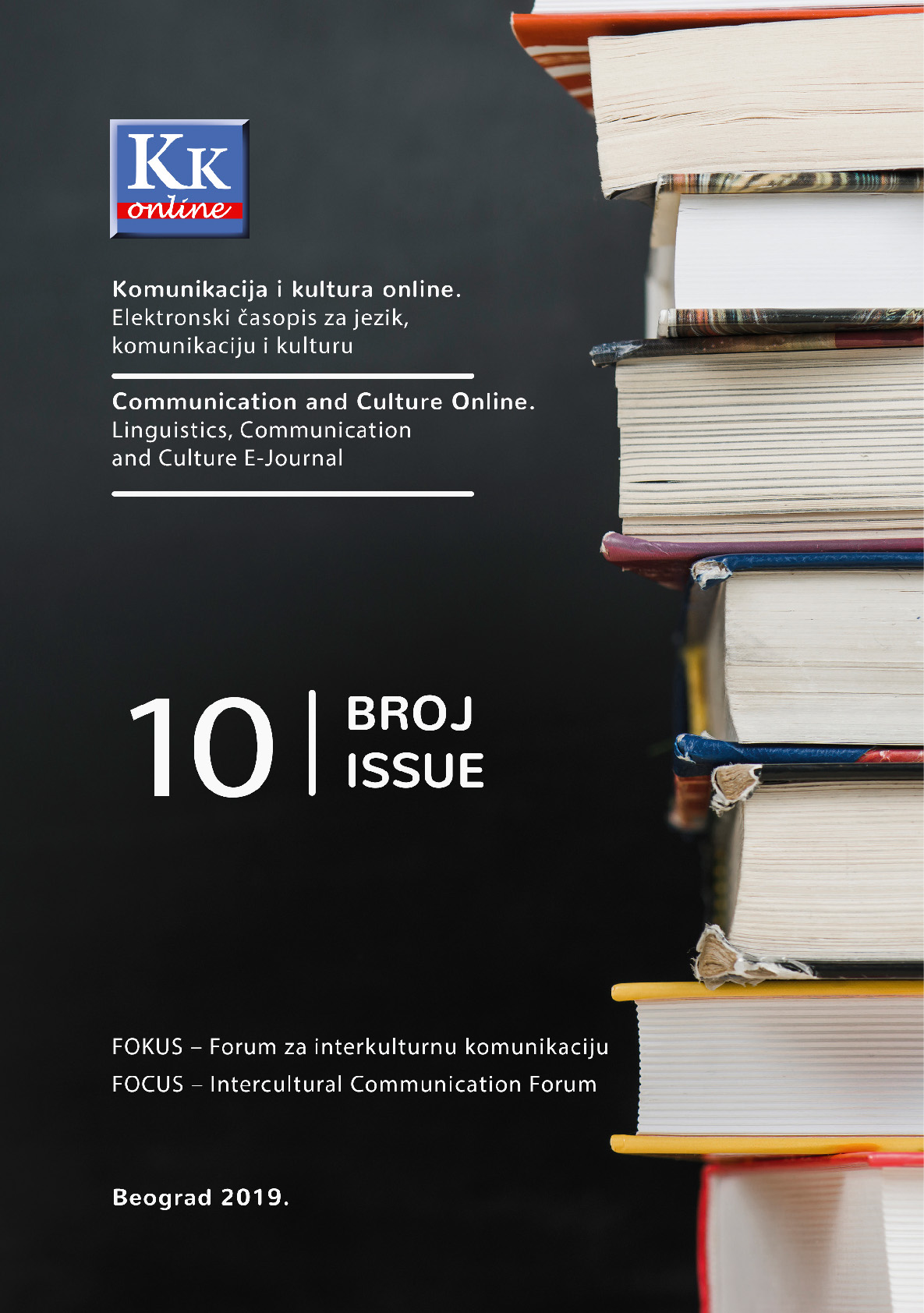LEXICAL VARIATION OF THE EQUIVALENTS OF ROME DIALECT VULGAR EXPRESSION MORTACCI IN SERBIAN TRANSLATION OF PASOLINI–S NOVEL THE STREET BOYS
DOI:
https://doi.org/10.18485/kkonline.2019.10.10.3Keywords:
Italian, Serbian, Pier Paolo Pasolini, vulgar expressions, translation equivalents, mortacciAbstract
Pasolini–s novel Ragazzi di vita (The Street Kids, translated by Ann Goldstein, 2016) is characteristic for the presence of Roman dialect in dialogues and recursive vulgar expressions (cazzo, vaffanculo, stronzo, mortacci). These two stylistic instruments contribute to perceive the main characters of this novel as socially deeply marginalized individuals lacking almost any formal education and prone to criminal activities and fraud. The Serbian translation of this novel (Iskusni momci, by Gordana Subotić, 2015) shows two major defects: one is due to the constraints of Serbian language, which generally does not have the means to replicate in Serbian the parallel usage of literal language and dialect in foreign language prose. Unlike Serbian, Croatian language showed the capability to include in the translation of Gadda–s novel That Awful Mess on the Via Merulana (by William Weaver, 1985) Dalmatian dialect alongside Croatian literal language, preserving the „bilingualism” of the Italian text. However, a major (though evitable) defect of the Serbian translation is represented by the choice of Serbian translator to vary, with no apparent reasons, the most dominant vulgar expression in the novel, mortacci (translated in English as „go to hell!”, although other equivalents also match its meanings, like „damn”, „shit”, „fuck (you)” and the like). In the Serbian translation we found 27 equivalents for the 45 occurrences of mortacci, but only a small part of them keep the necessary degree of vulgarity, while other equivalents are either euphemistic or anachronistic. Unmotivated lexical differentiation of this vulgar expression produces a shifted perception of the main characters, of their psychology and their social status. Thanks to the abundance of lexical equivalents, their language seems to be less violent, more controlled and inoffensive, in contrast with their behavior and actions. This distorted perception is particularly alarming because Pasolini is an important Italian author and his works should be translated, ideally, with most accuracy and coherence because of the influence that important and renowned authors have among foreign readers, critics and, potentially writers.









